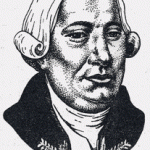The Early Years of King George III’s Reign
Category: 18th century In 1760, the aged George II was succeeded by his grandson, George III. Unlike his predecessors, George III was more interested in English than German affairs. George tried to enter politics as an independent force. He did not attempt to free himself from the control of Parliament, as the time when that was possible had long passed. Rather he tried to make himself “the first among the electioneering gentlemen of England”.
In 1760, the aged George II was succeeded by his grandson, George III. Unlike his predecessors, George III was more interested in English than German affairs. George tried to enter politics as an independent force. He did not attempt to free himself from the control of Parliament, as the time when that was possible had long passed. Rather he tried to make himself “the first among the electioneering gentlemen of England”.
The new British-born king had a deep sense of moral duty and tried to play a direct role in governing his country. To this end he appointed men he trusted, such as Lord Bute, who became prime minister in 1762. Though it was Bute who ended British participation in the Seven Years’ War, his ministry was not a success, and he resigned in 1763.
Four short-lived ministries followed until 1770, when George found, in Lord North, a leader pleasing both to him and to the majority of Parliament. During the 1760′s, politicians out of office spurred a campaign of criticism against George Ill’s use of his patronage powers. The newly-organized Society of Supporters of the Bill of Rights provided a model for subsequent King George illradical reform movements.
Their programme included freedom of the press, the abolition of “rotten boroughs”, an expansion of the right to vote, and an increase in the frequency of meetings of Parliament.
